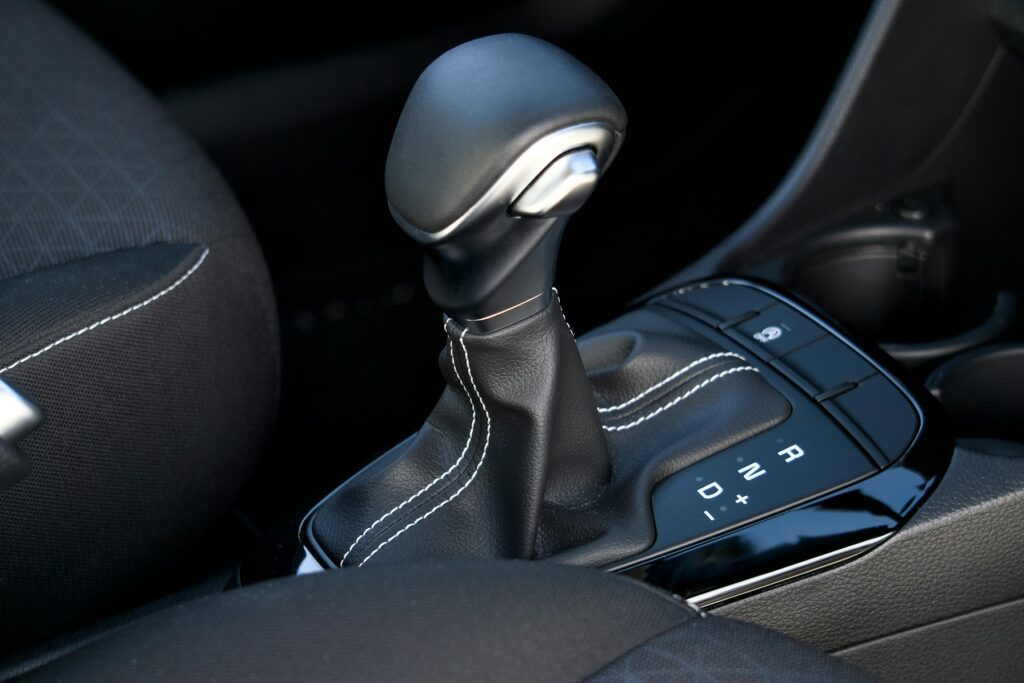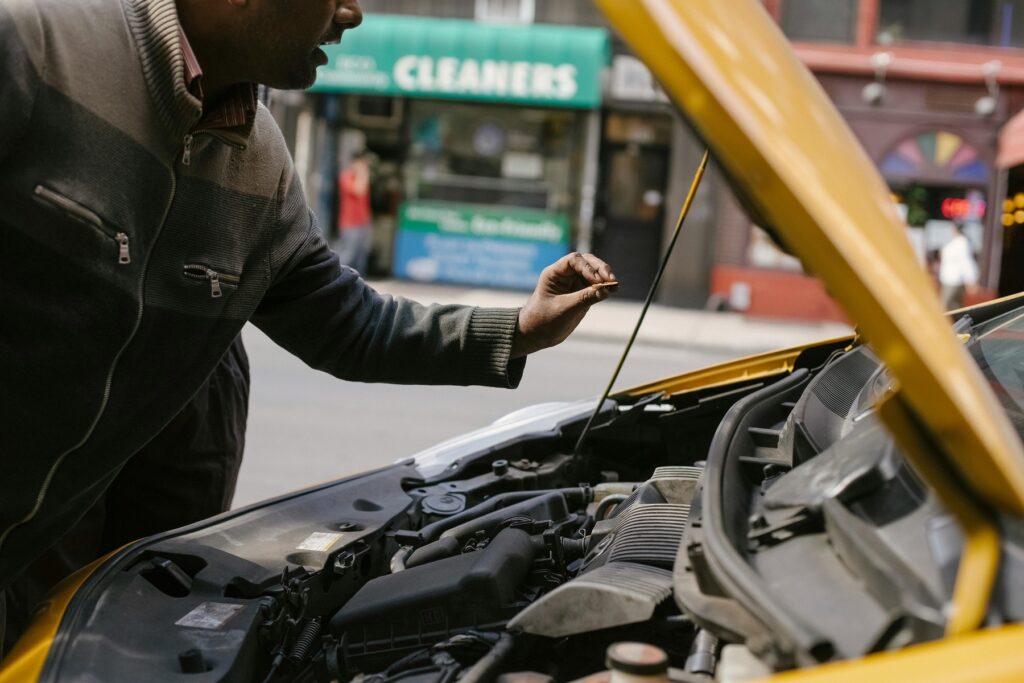Manual gearbox and automatic transmission problems can wind up being very expensive to repair. It’s a good idea to know what to look out for so you can identify the problem early.
Here the breakdown experts at Sterling Insurance identify 15 signs that your gearbox might be failing.

1. Check for gearbox fluid leakage
If you drive an automatic and your car appears to be struggling to change gear, park your car and check underneath for leaking red automatic transmission fluid. If oil levels are very low it may have started to burn so it may be brown or black.You can also have problems selecting gear if your manual gearbox oil is low. You should top up the oil and get to a garage quickly, or call us for instant breakdown cover and we can help you immediately.
2. Check dashboard warning lights
The ‘check engine’ light on the dashboard can warn you about a variety of problems, including a faulty gearbox. It’s not a warning light that should be ignored. Check coolant, oil and transmission fluid levels, or take your vehicle to the garage. To find out more, read our blog on dashboard warning lights that every British driver should know.
3. Are your gears becoming unresponsive?
If you’re having trouble changing gear, your gearbox probably has a fault.
If you drive an automatic, you might notice the car will stay in a low gear for too long, and if you drive a manual, you may notice a delay between new gear selection and an increase in revs. The vehicle may also accelerate at a slower rate than the increased revs suggest.

4. Listen for any unusual sounds
Your gearbox may be malfunctioning if you hear unusual noises coming from it. Listen out for whining, banging and clunking.
Note that these noises may be caused by other problems: perhaps a faulty engine, drive shaft or exhaust. Whatever the cause, if you hear abnormal sounds coming from your gearbox, it’s probably time for a trip to the garage.
5. Beware a shake, jerk or grind
You may find the car shakes, jerks or grinds if you have developed gearbox bearing problems.
Automatic gearbox telltale signs include hesitation, slipping, or “trembling” during gear changes. Manuals are more likely to grind.
Jerking and clunking noises are more likely to be caused by failing engine and transmission mounts.
6. There might be a rumbling in neutral
A rumbling gearbox while neutral is engaged usually means your transmission fluid has broken down and needs replacing. In some cases this can signify bigger, more serious problems, so it makes sense to get professional help.

7. The smell of burning rubber could be a bad omen
If you notice a rubber-like burning smell or smoke, you could have a transmission problem, especially if it is accompanied with fluid leakage.
If transmission fluid burns, the gearbox will not be getting the lubrication it needs and friction will generate heat within the gearing cogs. Burning smells coming from the engine should be a serious cause for concern and could result in you becoming stranded on the roadside. Before that happens to you, read our ultimate guide to breakdown cover.
8. The car struggles to change gear
Trouble getting the car into gear or feeling resistance while shifting is a clear sign of gearbox trouble. This may be caused by incorrect or low transmission fluid, blocked filters, faulty sensors or a failing solenoid.
9. Watch out for gear slippage
Gear slippage is an easy sign to recognise and provides a warning that your automatic transmission or manual gearbox is failing and in need of expert attention.

10. A dragging clutch is a common problem
Clutch drag occurs in manual cars when the clutch disc and flywheel don’t disengage fully when the clutch pedal is pressed. You might find that this results in noisy gear changes or difficulty putting your car in first or reverse gears.
11. Poor acceleration
Difficulty in accelerating, even when pressing the accelerator, can be linked to gearbox problems. The vehicle may also accelerate at a slower rate than the increased revs suggest or there may be a delay in the vehicle’s response when you press the accelerator.
12. Gearbox oil contamination
Check there is sufficient gearbox oil or transmission fluid and that it is in good condition. Discoloured or foul-smelling transmission fluid could indicate internal damage or contamination. It may be more than a simple top up job as the cause of the contamination may come back to haunt you!
13. High RPMs at speeds
If your engine revs higher than usual when driving at a consistent speed, it may be a gearbox issue. It will only get worse, putting more strain on the engine so should be addressed quickly.
14. Difficulty in engaging reverse
If you have trouble getting the car into reverse or there is a delay between putting the car in reverse and the car actually moving, this could indicate a gearbox problem.
15. Poor fuel efficiency
A failing gearbox can lead to increased fuel consumption due to inefficient power transfer so keep an eye on how many miles you are getting to the gallon. You may put off the trip to the garage to have your gearbox checked out by a professional but you will be shelling out on buying extra fuel and it may cost you more in the long run.

Trust Sterling Rescue to save the day
No one wants to be stranded on the hard shoulder of the motorway with a problem gearbox. That’s why it’s sensible to have vehicle breakdown cover you can trust. Sterling Rescue offers 12 months cover from as little as £25.42.
Help is on hand 24 hours a day, 365 days a year, and we can arrange roadside recovery or a reliable home repair service, whether your gearbox lets you down in the UK, Europe or further afield. Call 0344 381 9959 for a quote.